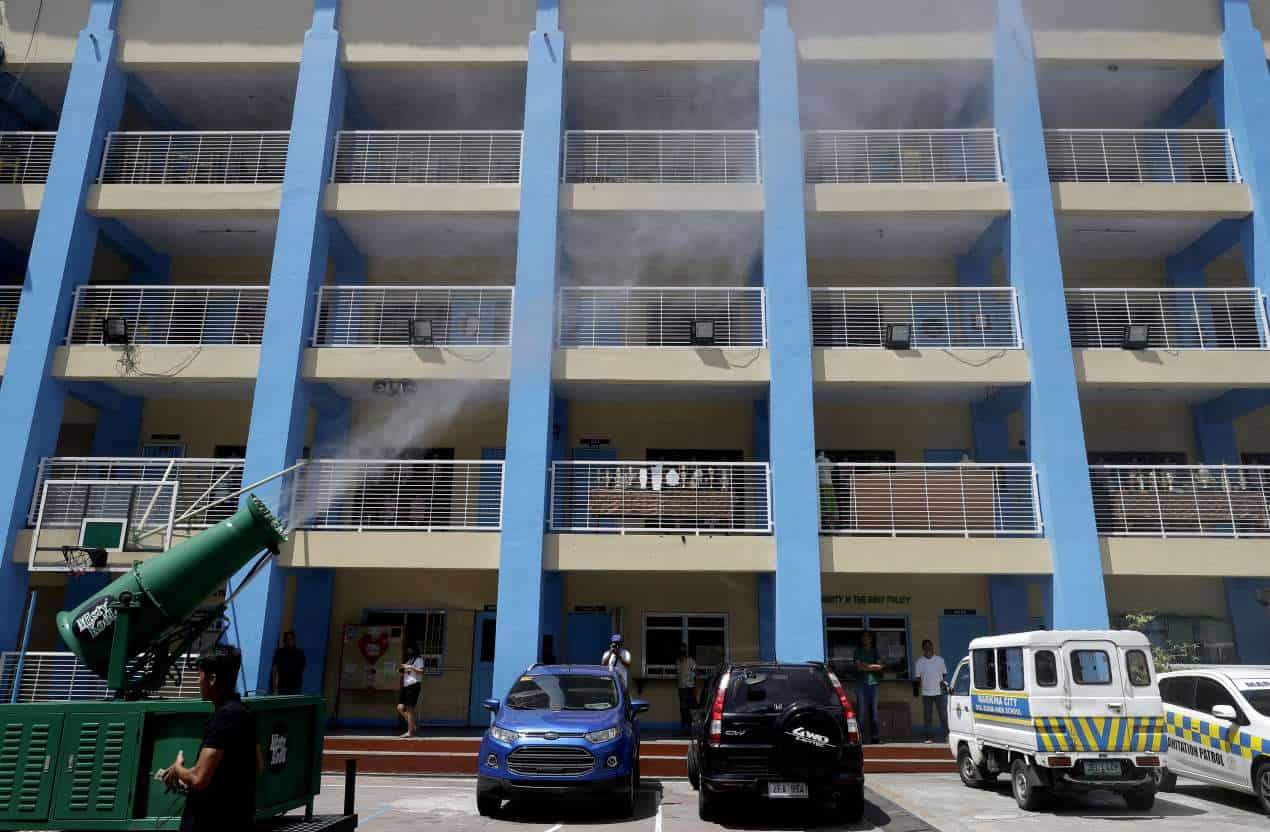Coronavirus Puts Iran Nuclear Deal Monitoring at Risk

The rapid spread of coronavirus in Iran means atomic inspectors need the remote-monitoring powers they received under the beleaguered nuclear deal more than ever.
There’s concern that contact with carriers of the virus in Iran, where senior officials have been infected, could deplete the International Atomic Energy Agency’s roster of inspectors by forcing some into quarantine, according to two diplomats briefed on the matter who asked not to be identified.
Verification technology of the sort installed at the Natanz fuel-enrichment plant under the 2015 agreement, known as the Joint Comprehensive Plan of Action, is becoming even more important.
“At a time when the prevalence of coronavirus in Iran potentially makes life for inspectors more difficult, the redundancies built into the JCPOA become more valuable,” said Andreas Persbo, a nuclear-verification specialist at the European Leadership Network. “That’s particularly the case for online enrichment monitoring.”
Iran is the only country in the world where the IAEA has online enrichment monitoring installed. U.S. scientists at Oak Ridge National Laboratory developed the technology at the agency’s request specifically for use in Iran, according to laboratory documents seen by Bloomberg News. The gear was tested in July at Iran’s biggest uranium-enrichment facility in Natanz, after Iran raised uranium enrichment levels to 4.5% in response to renewed U.S. sanctions.
The heavy metal that can be used for power and bombs has been at the heart of the conflict over Iran’s nuclear program for more than two decades, and IAEA inspectors are entrusted to keep track of every gram under the accord.
“Staff safety is our paramount concern,” IAEA Director General Rafael Grossi told his board of governors at a meeting this week in the Austrian capital. He instructed deputies to “consider whether staff travel is essential.”
When Iran upped the ante on U.S. sanctions July 8 by enriching uranium beyond agreed levels, atomic monitors 2,600 miles away were able to confirm the change without inspectors being present.
Officials were afraid the system might not be able to detect the difference but it worked “fantastically,” said a third diplomat who’s been tracking Iran’s atomic program for years. The IAEA could ask Iran to install more online enrichment monitoring at its Fordow facility, where enrichment is restarting, the diplomats said.
Pressure over inspections mounted this week at the IAEA’s quarterly board meeting, where monitors reported Iran is still stonewalling a visit to two sites that might have hosted nuclear material some two decades ago and haven’t been declared. The U.S., which continues funding key JCPOA activities even after leaving the pact, wants to raise pressure on Iran over the delay. That’s a potentially risky strategy if it weakens remote monitoring, according to verification experts.
“Being part of the IAEA inspections in Iran under the JCPOA gives the U.S. access to many details of Iran’s nuclear program that it would otherwise not know,” said Robert Kelley, a former IAEA director who led teams in Iraq and Libya. “There will be no surprise breakout as long as the U.S. has daily access to IAEA results through the JCPOA. It is better to be inside the tent sharing data than to be outside and wondering what is happening.”
Even as U.S. President Donald Trump has belittled the accord, calling it “the worst deal ever,” his Department of Energy has budgeted millions of IAEA aid in 2020 and 2021 to carry out monitoring mandated under the agreement.
“It remains vital to the United States that the IAEA continue to perform its verification mission in Iran,” a Department of Energy spokesman wrote in an emailed reply to questions. “Support to the IAEA in this regard, which is consistent with our broader commitment to ensure a robust and credible safeguards verification system globally, is crucial to ensuring that the IAEA can detect and deter any nuclear activities that are not for peaceful purposes.”
The coronavirus could also hammer home the importance of maintaining or even expanding Iran’s cooperation with the IAEA, according to Ali Vaez of the International Crisis Group.
“The Iranian leadership knows that if it curbs the IAEA’s inspections, it will lose the support of all the remaining parties to the JCPOA,” he said. Losing access to remote monitoring and other verification powers enabled by the deal “would not be the beginning of the end, it will be the end,” he said.
Photo: © Aaron Favila/AP PhotoA machine sprays disinfectants at a school on March 13 in Marikina, Philippines. The Philippine president announced domestic travel to and from metropolitan Manila will be suspended for a month.











